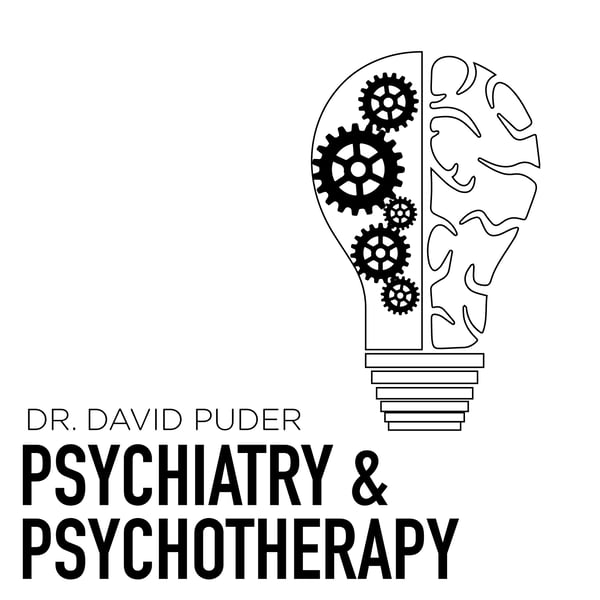Cognitive Behavior Therapy (CBT) with Dr. Judith Beck
Psychiatry & Psychotherapy Podcast
David J Puder
4.8 • 1.3K Ratings
🗓️ 12 January 2024
⏱️ 78 minutes
🧾️ Download transcript
Summary
In today’s episode of the podcast, we interview Dr. Judith Beck, a prominent figure in the field of psychology and author of the highly regarded textbook, Cognitive Behavior Therapy: Basics and Beyond, which is a staple in the academic journey of many students in psychiatry, psychology, counseling, social work, and psychiatric nursing. This book, translated into 20 languages, is a key resource in the U.S. as well as globally.
Dr. Beck serves as the president of the Beck Institute for Cognitive Behavior Therapy, which she co-founded with her late father, Dr. Aaron Beck, who is considered the father of CBT. The Beck Institute is a non-profit organization based in Philadelphia. In addition to her leadership role, she is a Clinical Professor of Psychology in Psychiatry at the University of Pennsylvania, where she educates residents.
Transcript
Click on a timestamp to play from that location
| 0:00.0 | Welcome to the podcast. I am joined today with Dr. Judith Beck. She is the daughter of the founder of CBT, Dr. Aaron Beck. |
| 0:25.0 | And she is now the president of the Beck Institute for cognitive behavioral therapy. She has authored a widely cited, widely used cognitive therapy textbook called cognitive therapy basics and beyond, which has been translated into 20 languages. |
| 0:45.0 | She also is a clinical professor at the University of Pennsylvania, where she teaches residents. And so today we are going to be talking about cognitive behavioral therapy. We're going to be talking about her book. |
| 0:58.0 | I also have with me an Australian resident in his final two years of residency out there in Australia, Adam Burt. Adam, welcome to the podcast as well. |
| 1:09.0 | Thanks for having me. |
| 1:11.0 | Yes, so I was thinking Dr. Beck, we could start with you talking a little bit about the history of CBT. I know your father was initially working with depressed patients. He was psychoanalytically trained. |
| 1:25.0 | And somehow he found CBT in the midst of doing psychoanalysis. And I'm curious about that. |
| 1:33.0 | Oh, well, it's a, it's a pretty good story. And when I am, you know, throughout this podcast, when we talk about CBT, I'm going to be talking specifically about the form of CBT or cognitive therapy that was developed by Aaron Beck back in the 1960s and 70s, because there's actually lots of different kinds of CBT, but I'm really going to be focused on that one. |
| 1:57.0 | Okay, so to start back even a little bit further, my father never intended to become a psychiatrist. |
| 2:05.0 | He had decided that he would be a neurologist, but this was during World War II or the Korean conflict. |
| 2:16.0 | And there was a shortage of psychiatry residents where he was doing his residency and the chairman of the department, decreed that all of the psychiatry, all of the neurology residents had to do six month rotation in psychiatry. |
| 2:32.0 | If not for that, who knows, maybe there would never be this form of CBT. |
| 2:38.0 | When he first started to study CBT, he was quite skeptical about psychoanalysis because he was really a scientist at heart. |
| 2:50.0 | And at that point, there was little, if any, data at all to suggest that the psychoanalytic theories were correct or that psychoanalysis itself would help people overcome their psychiatric disorders. |
| 3:07.0 | But as he kept on training in psychoanalysis and as his mentors and his instructors and professors and his fellow residents persuaded him that he should really give psychoanalysis a try. |
| 3:23.0 | And so at some point, he decided just to kind of dive in head first, he went through two analyses, two long analyses himself. |
| 3:33.0 | And he really was a regular psychoanalyst. So when he first started, he had patients lying on the couch three to five times a week, free associating while he sat back and made interpretations, just kind of standard old fashioned psychoanalysis. |
| 3:55.0 | But being a scientist at heart, even though he had really bought into psychoanalysis at this point, he realized that in order to really gain currency and the scientific world, that the theory, the psychoanalytic theories would need to be validated by research. |
| 4:14.0 | And so he embarked on a series of studies that he was sure would show that some of the psychoanalytic concepts were accurate. |
| 4:25.0 | And he decided to look at the illness, the condition of depression, he just happened to be seeing a lot of people who have depression. |
| 4:37.0 | So we kind of embarked on a study of psychoanalysis of depression and decided to test the idea that depression was really the results of hostility turned inward toward the cell. |
| 4:52.0 | And if this were accurate, then the dreams of patients who suffered from depression should show far more themes of hostility than the dreams of normal controls or like people with psychiatric disorders other than depression. |
... |
Transcript will be available on the free plan in -443 days. Upgrade to see the full transcript now.
Disclaimer: The podcast and artwork embedded on this page are from David J Puder, and are the property of its owner and not affiliated with or endorsed by Tapesearch.
Generated transcripts are the property of David J Puder and are distributed freely under the Fair Use doctrine. Transcripts generated by Tapesearch are not guaranteed to be accurate.
Copyright © Tapesearch 2025.

